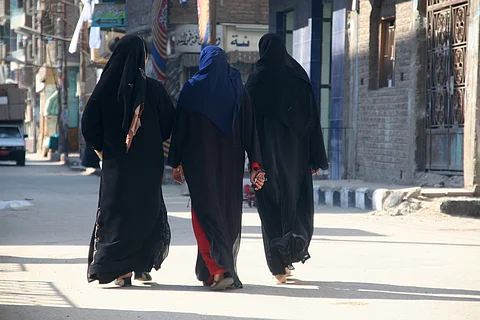

Nearly four years after the Taliban seized power, Afghan women remain largely excluded from public life, with the country now facing one of the world’s most extreme gender gaps, a new report from UN Women has found.
The 2024 Afghanistan Gender Index — the most comprehensive assessment of women’s empowerment and gender equality in the country since August 2021—revealed that Afghan women achieve just 17.3 per cent of their potential to access rights and opportunities. In contrast, the global average stands at 60.7 per cent.
The report also showed that Afghan women achieve only 23.7 per cent of what Afghan men do across key dimensions of human development, including health, education, financial inclusion and decision-making.
Released on June 17, 2025, the index ranked Afghanistan second to last among 114 countries, behind only Yemen. “Afghanistan’s greatest resource is its women and girls,” said UN Women Executive Director Sima Bahous in a statement. “Their courage and leadership are reshaping their communities, even in the face of immense restrictions. We must stand with them.”
The report, developed with support from the European Union, surveyed over 2,100 people across eight provinces. Its findings paint a stark picture of institutionalised gender discrimination under the Taliban’s rule.
According to the data, 78 per cent of young Afghan women aged 18-29 are neither in education, employment, nor training, nearly four times the rate for men. The secondary school completion rate for girls is projected to fall to zero, following successive bans on education for girls beyond grade six and, more recently, a December 2024 decree prohibiting women from studying medical subjects.
Women’s labour force participation remains low at 24.2 per cent, compared to 88.9 per cent for men. Most women who do work are in poorly paid or informal roles and lack financial autonomy. Only 6.8 per cent of women own a bank account or use mobile money services, compared to 20.1 per cent of men.
Political representation for women has collapsed. No women hold positions in the de facto Cabinet or local government and women make up none of the national parliament — now dissolved. This complete exclusion follows the Taliban’s dismantling of constitutional safeguards and institutions such as the Ministry of Women’s Affairs, the report said.
Despite this, the report noted a rise in the number of women actively seeking employment, driven by Afghanistan’s economic collapse. The number of unemployed women looking for work has quadrupled since the takeover, while the number of employed women has doubled.
The Index also highlights high levels of gender-based violence. As of 2018 — the most recent available data — nearly 35 per cent of women reported experiencing intimate partner violence, a rate nearly three times the global average. Since 2021, access to protection services and legal remedies has all but disappeared.
The report noted that data could not be collected for five key indicators due to safety concerns and restrictions on data collection under Taliban rule. These are: Healthy life expectancy, access to modern contraception, adolescent birth rate, women's share of managerial roles and rates of intimate partner violence.
The Index would serve as a critical tool for tracking gender equality in Afghanistan, according to the statement. “UN Women continues its work on the ground to ensure the priorities and needs of Afghan women and girls remain at the forefront of global response and they are able to live in dignity and contribute to the nation’s development,” it added.